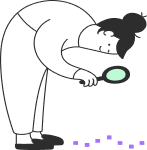Estimated reading time: 5 minutes
There’s a reason why bodybuilders are constantly eating, or downing protein shakes. Strength training is essential if you want to build muscle, and your protein intake is equally important. Finding the right balance between exercise and nutrition sets you up for optimum muscle-building success.
Plan meals together! Share this plan with your family

While it may not be rocket science, there is a science behind building muscle. Science makes it abundantly clear that protein is essential in the muscle-building process.

What is protein?
Protein is an essential macronutrient. It comprises 22 amino acids and accounts for up to 15% of your body mass. Protein is vital for your muscles, hair, bone, skin, and internal organs.
Your body makes many of the 22 amino acids that build protein in a process called protein synthesis. But nine of these – known as the essential amino acids – can not be made in the body and must be obtained from food.
There are three types of muscles: skeletal muscle tissue, smooth muscle tissue, and cardiac muscle tissue.
Think of smooth muscle tissue as the muscles around your internal organs; they work automatically. Your cardiac muscle tissue makes up your heart and is the hardest-working muscle in your body. Skeletal muscles are the muscles you target during exercise and the muscle you seek to build during strength training.
Myofibrils are the fibers that all muscles are made up of. These myofibrils are comprised of 2 proteins called actin and myosin. Another 2 proteins, called tropomyosin and troponin, help regulate muscle activity.
How much protein do you need?
The recommended dietary allowance for protein is .8 grams per kilogram of body weight. This quantity is just an average guide and doesn’t consider exercise.
For physically active individuals, a higher protein consumption of between 1.4 grams and 2 grams per kilogram of body weight is the recommended quantity for protein intake.
The role of protein in building muscle
Muscles are made up of proteins. With this in mind, you will find it easy to understand that protein is required to both build and repair muscles.
The whole process of strength training to build muscle mass involves a damage and repair cycle.
Resistance training causes trauma to muscles, which causes damage to the muscle fibers. This damage instigates messaging within the body to start the repair process. At this time, your body uses protein synthesis to repair the damaged muscle, laying down new muscle fibers and increasing muscle mass.
If inadequate protein is available to repair and build muscle, not only will muscles be prevented from growing, but this protein deficiency will eventually lead to a breakdown in body tissue, including muscle mass.
Dive into our content and find culinary inspiration

Protein sources
Now you know the importance of protein in building muscles. It’s time to look at some good sources of protein.
Meat and dairy are well-known sources of protein. With the rise in the popularity of vegetarian and plant-based diets, you may be interested in alternative protein sources.
Here are some of the superior non-meat or dairy protein sources.
- Quinoa.
- Tofu.
- Legumes (chickpeas, lentils, peas, and beans).
- Vegetables (broccoli is relatively high in protein).
- Nuts and seeds.
Remember that you will want to consider the whole nutrient package of your protein source; this includes the fat content. Here is a list of 13 lean protein foods for reference.

Protein consumption with exercise
Interestingly, it’s not enough to consume adequate protein during the day. There’s also an optimum time to take said protein in and around your exercise. That’s why it’s a good idea to spread your protein throughout the day.
There is an ongoing debate about time scales for protein consumption post-exercise. Studies suggest that 15 minutes to an hour is the best time to consume protein post-exercise. While newer studies have superseded this and believe the window stretches up to 2 hours.
Either way, be aware that the body starts the repair work once you stop exercising; therefore, to aid your recovery and facilitate optimum muscle growth consider taking 25 – 30 grams of protein after exercise.
This time zone for protein consumption is where protein shakes come in handy. If you want to jazz your protein powder up, add a spoonful of peanut butter, chia seeds, and a banana.
Protein after exercise is common knowledge. A little tidbit you may not be aware of is that a nighttime dose of protein can increase protein synthesis by a whopping 22 percent! The timing of your protein consumption can help you get more bang for your buck! Get that protein working for you, treat yourself to a bedtime protein-rich snack, and let your muscles repair and build while you sleep.
Time to up your protein intake?
Protein consumption can be a game changer. When you work hard in the gym, please do yourself a favor and ensure it is worthwhile by marrying up your protein consumption with your training.
Look after your body and take adequate protein to repair and build damaged muscles. A happy body is a strong and healthy body.
Words by Ali Hall


